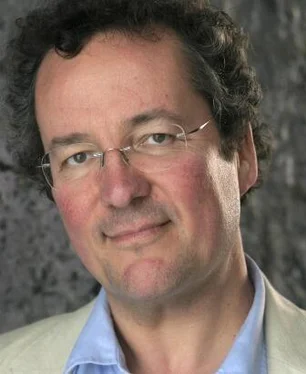There. It was over.
The funerals of her husband and her beloved child had originally taken place only a couple of days after the mutiny, but now, after some negotiation and the promise of funds, the two had been disinterred and reburied up near the altar in the church.
As she sat, Annicia was aware of the people coming and going about her. Many came to offer her their condolences once again, for they sought to remain on friendly terms with the attractive widow of Gidleigh. She possessed good lands, several herds and flocks, and was rumoured to be rich enough to benefit any new husband.
The priest himself, a pompous, self-important little twerp, twittered about her, his hands fluttering, nervous in the presence of his Lady, but she gave him short shrift and at last she was alone in the great room.
Rising, she felt slightly giddy. At once there was a steadying hand on her arm, and she smiled at Flora without speaking. She was growing fond of her husband’s daughter. There was no doubt in her mind that Flora was his child: Flora’s eyes, her brow, her lips, all were too much like Sir Ralph’s. For his sake if for no other, she was pleased to see Flora so happy in her wedlock. It was good to see so cheery a wife.
Leaving Flora, she walked slowly to the front of the church and stood staring down at the new slabs set into the ground at her feet. There were three in a line, each equidistant from the altar. Although she couldn’t read, she was perfectly well aware that the central one was Esmon’s, because she had insisted that he should be there, right next to his father. On his other side lay Sir Ralph, and her eyes rested on his slab a moment, without reverence or respect, but with a certain friendship. After all, she had been married to him for some while.
No, her attention was divided equally between the only two men she had ever really loved. Esmon lay there in the middle of the floor, and next to him was his father, Sir Richard Prouse, once the elegant, suave master of Gidleigh – murdered, or so she had thought, by Wylkyn.
‘God forgive me!’ she said quietly. ‘I truly believed he was the murderer, or I should never have persuaded my son to kill him.’
Of course, she now knew that Wylkyn was innocent of the crime. But that was not her fault. It was the only obvious conclusion at the time.
She was sorry that an innocent man was dead, but she felt no remorse, only sadness for the two men she had loved and lost: her lover, Sir Richard Prouse, and her son by him, Esmon. They were all that mattered to her.
I should now confess that the whole of this story is based on the poor man who came to be known as ‘The Mad Monk’: Robert de Middelcote, who lived and served in the chapel not far from Gidleigh. Like Mark, he too had a girlfriend, he too had her conceive, and he too ran from the area. His crime was that he punched his woman in the belly and killed their child in her womb on 28 March 1328.
His tale then diverged from Mark’s, because he escaped all the way to the outskirts of Exeter, to Haldon Hill, where he was captured.
The records show that he was hauled off to the Bishop’s court, but sadly the result of the action has been lost.
We do know what happened to his chapel, though. It was demolished, the stones taken away, and a new chapel built nearer Gidleigh. This new one was consecrated in 1332.
We cannot be certain where the old chapel was, so I have made a guess for the purposes of this book. Some people do reckon to be able to point to the old one. If you want to find it, I suggest you try walking over the land from Gidleigh towards Moortown. It should be along that old footpath somewhere.
But I warn you, when I mention that Mark is disgusted by all the mud, I am not joking. This is about the wettest footpath on the eastern section of the moor!
Michael Jecks












